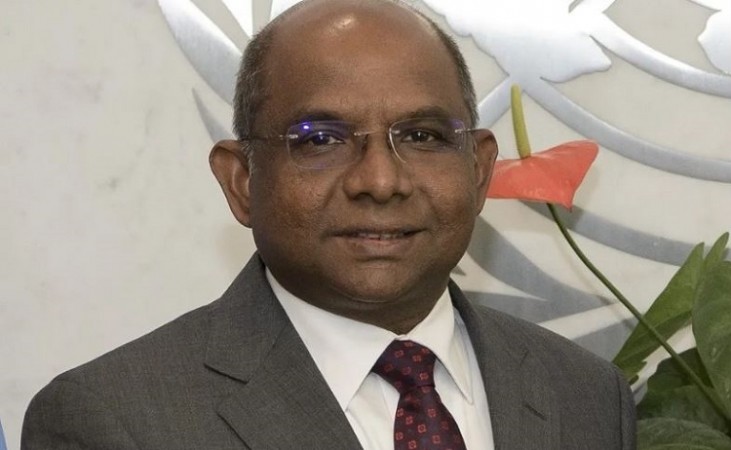
UNITED NATIONS: General Assembly President Csaba Korosi has named two diplomats to lead the reopened negotiating process in response to mounting calls for the UN Security Council to be updated to reflect the realities of the twenty-first century.
According to Korosi's spokesperson Paulina Kubiak on Thursday, the co-chairs of the Intergovernmental Negotiations (IGN), as the reform process is known, would be Permanent Representatives Tareq M.A.M. Albanai of Kuwait and Michal Mlynar of Slovakia.
A small number of nations have thus far blocked the reform process by preventing the adoption of a negotiating text, which has meant that the IGN functions without a proper agenda or a record of the negotiations. Korosi pledged when he assumed the role of Assembly president last month: "I'll do my best to forward this process." A negotiation text was "far needed," according to Korosi, and the new IGN leaders will be asked to develop a "solid" one. He promised to ask the co-chairs to "start negotiations on concrete suggestions, concrete text," and to "be as impact-oriented as possible."
With the exception of China, four of the five permanent members of the Security Council have supported the reform by adding India to the group's permanent membership.
During the high-level conference last month, the demand for reforms was repeatedly underlined in the General Assembly floor as leaders from US President Joe Biden to Marshall Islands President David Kabua spoke of the need to force the Council to confront modern realities.
Africa, which lacks a permanent seat on the Security Council but receives the majority of its mandates, is leading the charge to overhaul the body.
Last week, during a Security Council discussion on Africa, representatives from that continent and numerous other countries, including India, emphasised the necessity of resolving this anomaly.
To facilitate reforms for improved representation of Africa at the Council and to give it permanent sets, French Permanent Representative Nicolas de Rivere recommended text-based talks.
In June, the General Assembly rolled the deadlocked negotiations over to the current session in what has become an annual ritual, according to India's Permanent Representative Ruchira Kamboj: "Africa's continuing denial of representation in the permanent category of membership in this Council is a historical injustice that needs to be corrected sooner rather than later."
One modest improvement in the IGN procedure will be passed down to Albanai and Mlynar from their predecessors, Permanent Representatives Alya Ahmed Saif Al-Thani of Qatar and Martin Bille Hermann of Denmark.
The "Elements Paper on Convergences and Divergences," which outlines opinions on Council reforms and was produced in an effort to break the never-ending cycle of repeating discussions, is being left behind in a revised edition.
The acceptance of the negotiation document has been thwarted by a group of 13 nations known as Uniting for Consensus (UfC), which is headed by Italy and includes Pakistan and Canada.
India's Deputy Permanent Representative R. Ravindra has issued a warning that it might be time to search for alternatives if the negotiations fail due to the decades-long delay in the process.
Looking beyond the IGN may now provide the only viable pathway, he said in June, for those of us who truly wish to fulfill our leaders' commitment to early and thorough Security Council reforms. The basic architecture of the Security Council reflects the post-World War II scenario, with the permanent membership limited to the five countries that were on the war's winning side.
Four non-permanent members were added, bringing the total to 10, during the reform 57 years ago.